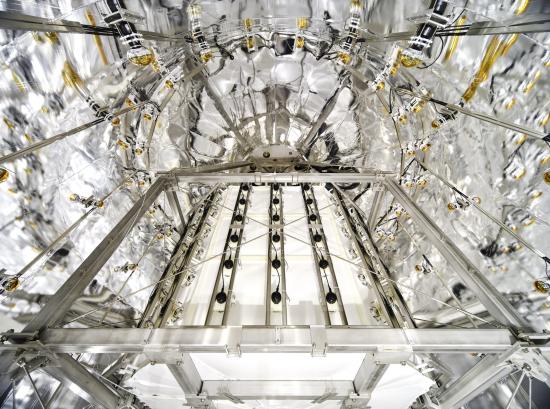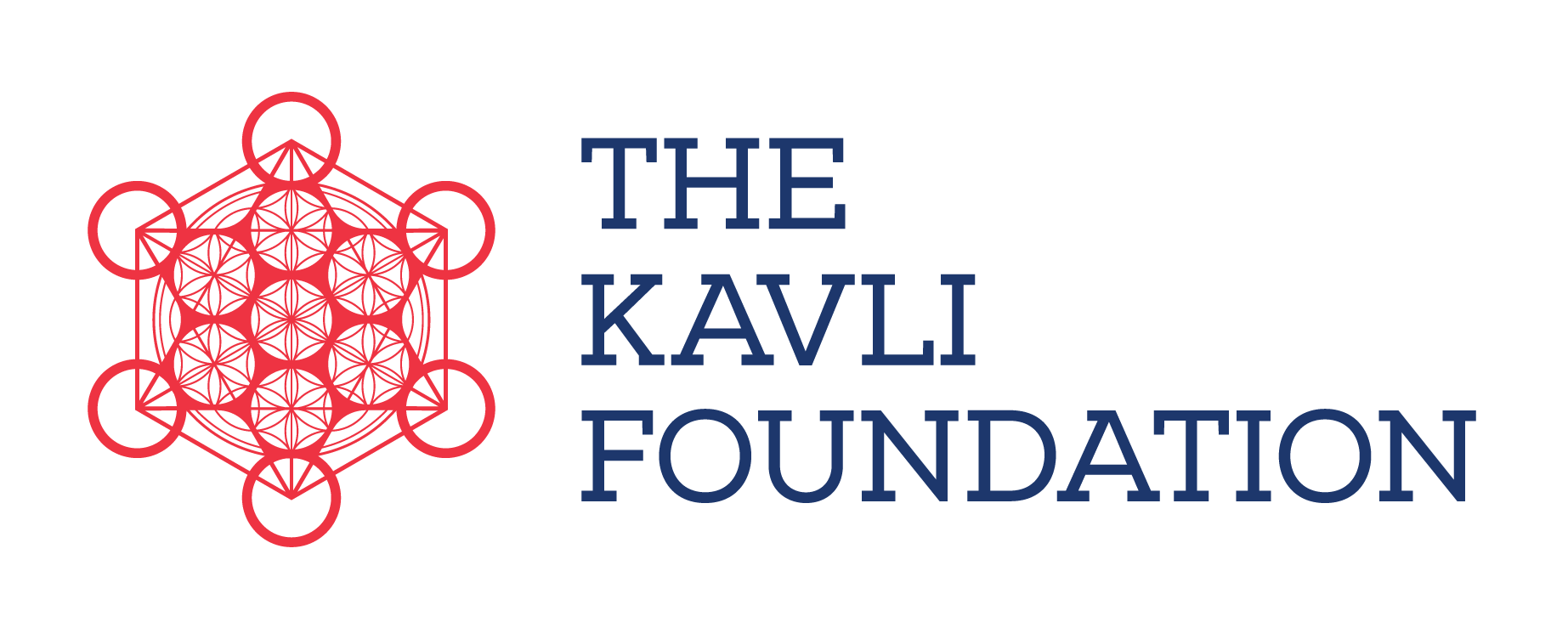March 23, 2023
The XENON collaboration
Kobayashi-Maskawa Institute for the Origin of Particles and the Universe, Nagoya University (KMI)
Institute for Space-Earth Environmental Research, Nagoya University (ISEE)
Kavli Institute for the Physics and Mathematics of the Universe, The University of Tokyo (Kavli IPMU)
Institute for Cosmic Ray Research, The University of Tokyo (ICRR)
Graduate School of Science, Kobe University

Scientists from the international XENON collaboration, an international experimental group including the Kobayashi-Maskawa Institute for the Origin of Particles and the Universe (KMI), Nagoya University; the Institute for Space-Earth Environmental Research (ISEE), Nagoya University; the Kavli Institute for the Physics and Mathematics of the Universe (Kavli IPMU), The University of Tokyo; the Institute for Cosmic Ray Research (ICRR), The University of Tokyo; and the Graduate School of Science, Kobe University, announced today the first WIMP dark matter search results from XENONnT, the latest detector of the XENON Dark Matter program. The XENON collaboration reported new limits on interaction of WIMPs with ordinary matter, which significantly improved the previous limits reported by the predecessor experiment, the XENON1T, in 2018. This result was presented at the special colloquium at Special Issue of L'Aqiula Joint Astroparticle Collloquia, on 22:30 2023/3/22 Japan Standard Time.
For more details, please visit press release by XENON Collaboration.
At Kavli Institute for the Physics and Mathematics of the Universe (Kavli IPMU) Kamioka Branch, Associate Professor Kai Martens, Project Associate Professor Masaki Yamashita, and Project Researcher Khai Bui are working hand in hand to search for dark matter with the XENONnT experiment.
Martens has been leading the effort to transfer and adapt our Kamioka water Cherenkov neutron detection technology to XENONnT. He is the leader of XENON in Japan and XENON Principal Investigator at Kavli IPMU.
"XENONnT first nuclear recoil WIMP search results are both a milestone and the start of a long journey. This first data also taught us that our Super-Kamiokande inspired neutron veto technology will be much more important than originally expected for the eventual 20 ton year data that are still to be collected with XENONnT," said Martens.
"We were able to do the first initial search for WIMP dark matter with the XENONnT detector. There were some problems with the detector, which did not work as designed, but we are happy that the liquid xenon purification worked well to compensate for the problems and contribute to increasing the sensitivity of the search. With this achievement, we have taken the first step forward. I am very much looking forward to the start of more serious observations with a water Cherenkov neutron detector containing Gd and further reduction of the radioactive background," said Yamashita
The XENON collaboration is an international experimental group including Nagoya University, the University of Tokyo, and Kobe University from Japan.
Japanese groups are contributing for the gadolinium loaded water Cherenkov based neutron veto system initially developed by Super-Kamiokande group; the liquid xenon purification system with the experience from the XMASS experiment; and data analysis as one of analysis coordinators.
*Our research related to XENON1T and XENONnT experiments are supported by: JSPS Kakenhi (18H03697, 18KK0082, 19H05802, 19H05805, 19H00675, 19H01920, 21H05455, 21H04466, 22H00127) , JSPS Core-to-Core program (JPJSCCA20200002), and JST FOREST JPMJFR212Q.
Paper details
Title: First Dark Matter Search with Nuclear Recoils from the XENONnT Experiment
Author: XENON Collaboration
Preprint: xenonexperiment.org
Note: This paper has been submitted to Physical Review Letters, will appear in arxiv.org shortly
Glossary
XENON collaboration
An international alliance consisting of about 180 researchers from 27 institutions in 12 countries and regions, mainly in Europe, the United States, and Japan. Institutions from Japan include Nagoya University, the University of Tokyo, and Kobe University.
Weakly Interacting Massive Particle (WIMP)
As one of the candidates for subatomic dark matter, it is considered an yet-undiscovered particle of which interaction with matter is very weak and having heavy mass. Their masses, interactions or other detailed properties are not known. One of the leading candidates is a supersymmetric particle predicted by a supersymmetric standard model of particle physics.
Blind analysis
One of data analysis methods to eliminate any unconscious biases. Observed data in the region of interest are masked until all analysis tools are fully ready.






